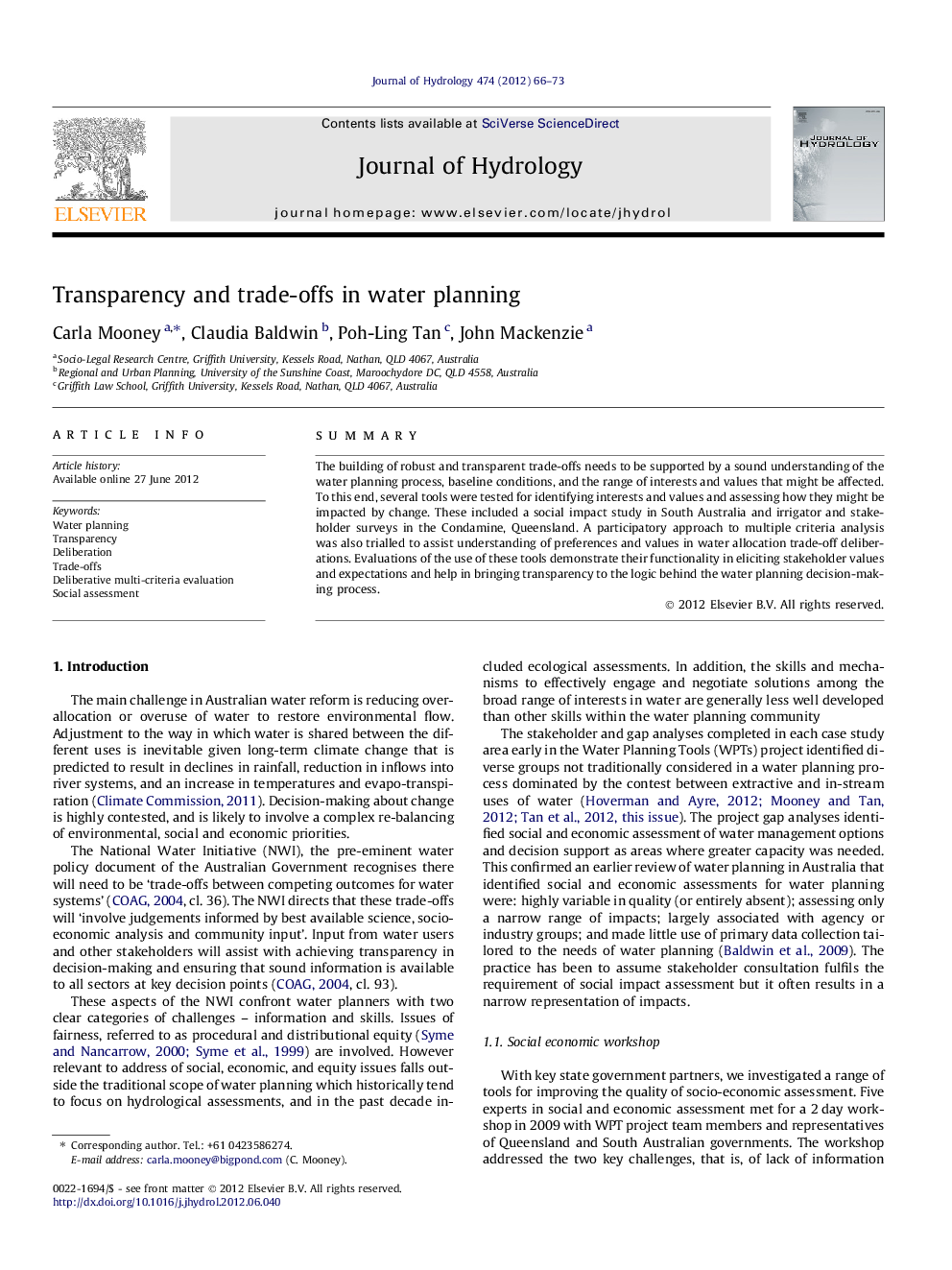| Article ID | Journal | Published Year | Pages | File Type |
|---|---|---|---|---|
| 4576691 | Journal of Hydrology | 2012 | 8 Pages |
SummaryThe building of robust and transparent trade-offs needs to be supported by a sound understanding of the water planning process, baseline conditions, and the range of interests and values that might be affected. To this end, several tools were tested for identifying interests and values and assessing how they might be impacted by change. These included a social impact study in South Australia and irrigator and stakeholder surveys in the Condamine, Queensland. A participatory approach to multiple criteria analysis was also trialled to assist understanding of preferences and values in water allocation trade-off deliberations. Evaluations of the use of these tools demonstrate their functionality in eliciting stakeholder values and expectations and help in bringing transparency to the logic behind the water planning decision-making process.
► Social assessments identify level of vulnerability of communities to change in water access. ► Social science tools can capture values about water from a broader spectrum of stakeholders. ► Multi-criteria evaluation contributes structure and transparency in water decisions. ► Information uncovered may be used for identifying areas for trade-offs. ► Evaluations show these tools may be confidently used in water planning.
